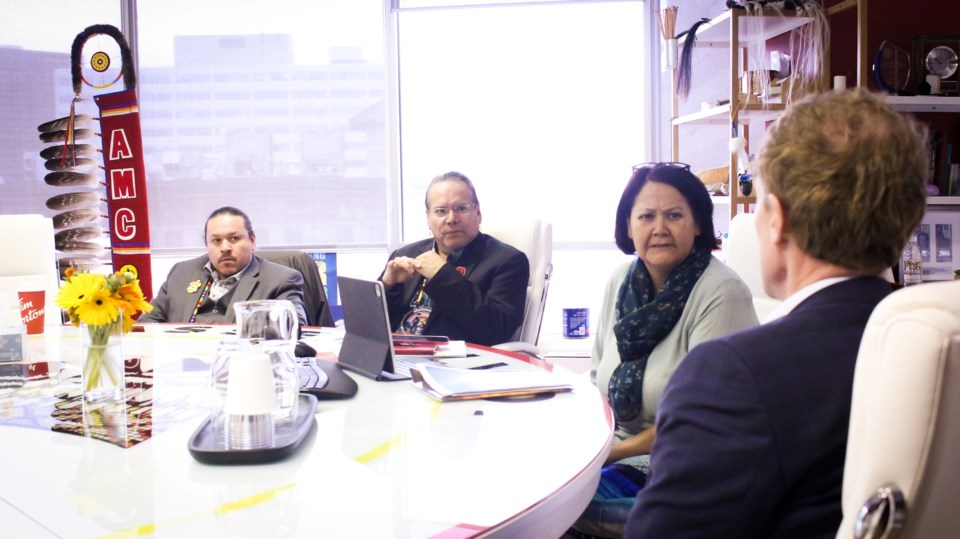Indigenous leaders in Manitoba are asking that the province invest more in health care as a lack of investment will continue to negatively and disproportionately affect First Nations people in this province.
“Manitoba Health has chronically underfunded First Nations in Manitoba, especially those living in northern and remote locations of the province,” Assembly of Manitoba Chiefs Grand Chief Cathy Merrick said in a media release.
Merrick’s comments come in reaction to the news that the Canadian Institute for Health Information has released data that projects Manitoba will have the third lowest healthcare spending per person in the country.
CIHI, a national health care data institute, is now projecting that Manitoba will spend $8,414 per person on health care, a number that is slightly below the national average of $8,563, but third lowest in the country with only New Brunswick ($8,010) and Ontario ($8,213) projected to spend less per person.
Merrick said that the projection should be troubling for all Manitobans, but particularly for First Nations people.
“This projection from CIHI is troubling as Manitoba has the highest population of First Nations citizens in Canada,” Merrick said. “Due to the ongoing cumulative damage done from colonization, First Nations have the highest rates of premature morbidity and mortality.
“The province and federal government continually claim to be doing all they can to provide health care services to remote and northern First Nations, yet this proves that Manitoba can do more. Chronic underfunding and recent budget cuts in health care put fiscal constraints above the needs and rights of First Nations citizens.”
Data compiled in this province backs up the notion that health care outcomes and life expectancies are not equal when comparing First Nations and non-First Nations Manitobans, as a University of Manitoba study released in 2019 said that the “health gap” between First Nation people and non-First Nations people was growing.
That study showed an 11-year age gap between life expectancy for Indigenous and non-Indigenous people, up from a seven-year gap that was recorded in 2002.
It also stated that First Nation people, both on and off-reserve, are “medically underserved” in Manitoba in several categories, while also being over-prescribed drugs such as opioid painkillers.
During a press event earlier this year, Southern Chiefs Organization Grand Chief Jerry Daniels spoke about the ongoing disparity between health outcomes for First Nations and non-First Nations people and said because of that disparity First Nations people are dying sooner than they should in this province.
“Indigenous people in this country and in this province specifically are still dying from a health-care system, and a colonial system that does not look after our people, so it’s very important that leaders acknowledge that the legacy of colonialism and residential schools continues to affect our people every single day,” Daniels said.
The provincial government did not respond to a request for comment from the Winnipeg Sun.
— Dave Baxter is a Local Journalism Initiative reporter who works out of the Winnipeg Sun. The Local Journalism Initiative is funded by the government of Canada.




